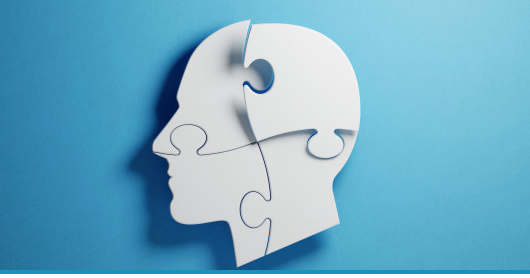Stories and medicine

One of the most enriching aspects of the Trailblazer GP fellowship are the weekly sessions we have with extraordinary leaders in their field. Two recent sessions, on trauma informed care and clinical commissioning, delivered just this. In the former session however, we were also privileged enough to hear not only from a GP colleague, but from two patients themselves: extraordinary people in their own right. The theme which shone out and which I want to explore in this post is that of human stories, and their power on both individuals and communities.
“Truth is the shattered mirror strewn in myriad bits; while each believes his little bit the whole to own”
I think this quote from Robert Burton, written in the 17th century, still has some resonance today. I would go further however and say each “little bit” of truth is one’s whole to own. We hear subjective truth from patients every day: “I just don’t feel myself”, “this medication doesn’t work for me”, “I am struggling to get over what happened last year”. In their book ‘Rethinking Causality, Complexity and Evidence for the Unique Patient’ 1 the authors from Cause Health argue, amongst many other things, that the patient’s story and the nature of the patient themselves are key to understanding the cause of ill health and therefore guiding appropriate treatment. The empirical methods of evidence based medicine (what can be measured across population averages) are still required as a framework, but ontological methods (the nature of the person in front of us) are the required substance within that framework: We know for example that an input (a hammer) causes an output (things break!), but the substance of what the hammer is hitting determines if, how and when it does indeed break. Clues about the substance of our patient lie in their demographic details or their lifestyle or genetics, but our patients give us the biggest clue themselves if we listen for it, which is their own expression of their personal experience unfettered by external tweaks – their story. Please don’t go hitting any patients with hammers.
This isn’t just an idea; it is part of the history of the human race. We are universally a species of story tellers. Stories such as the Epic of Gilgamesh were spoken 4,000 years ago with many more stories far predating this. Stories co-forming with language and cooperation were indeed the melting pot of the early hominisation process 2 – they are hard-wired into our nature. It is no wonder then, when considering how to apply for local funding for clinical schemes, that Dr Lucy Chiddick, Health Inequalities Clinical Lead NHS Leeds CCG, recommends “starting with a story”. It is also not coincidence which causes Hilary Cottam to start her excellent TED Talk on her vision for social care in the country, with stories, three of them to be precise: “I want to tell you three stories about the power of relationships to solve the deep and complex social problems of this century” she begins. And there is power here.
So, what do we know of the inner lives of our patients? How can we hope to understand how the memory of past traumas sit in their current lives? A good start is by listening to them and by trusting their stories. How can we persuade others of the plight of the patients we advocate for, and be agents for system change? By passing on these stories. We may often forget it, but we sit at a privileged juncture as listeners and chroniclers of human experience, and we owe it to them to listen properly and respond appropriately. What we need now, is time. I am not asking for enough time to hear out the Epic of Gilgamesh, I am merely asking for enough time to properly listen to Dianne from four roads down, so that I may do right by her.
- Rethinking Causality, Complexity and Evidence for the Unique Patient. (2020). In Rethinking Causality, Complexity and Evidence for the Unique Patient. https://doi.org/10.1007/978-3-030-41239-5
- Mithen, S. (1997). The Prehistory of the Mind. CAMBRIDGE ARCHAEOLOGICAL JOURNAL, 7(2).
